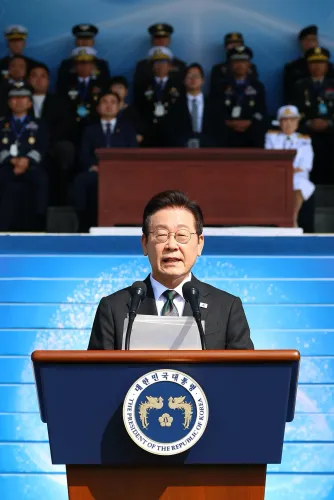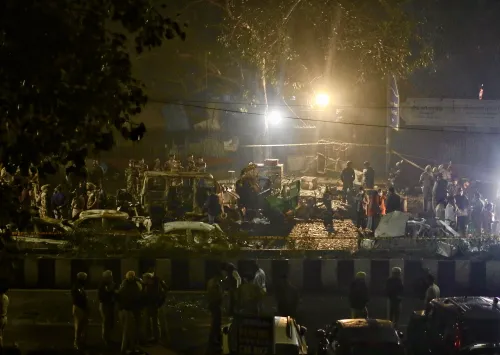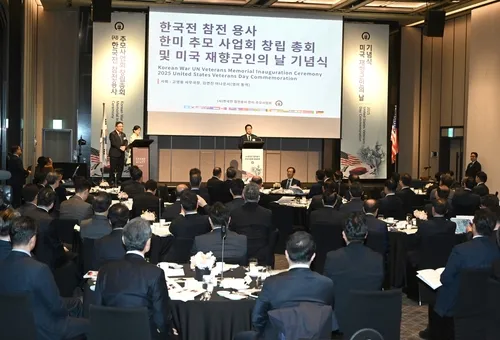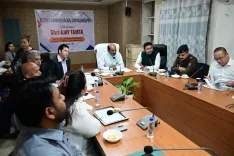How Can Africa Align Its Development Goals with the Multilateral Trading System?
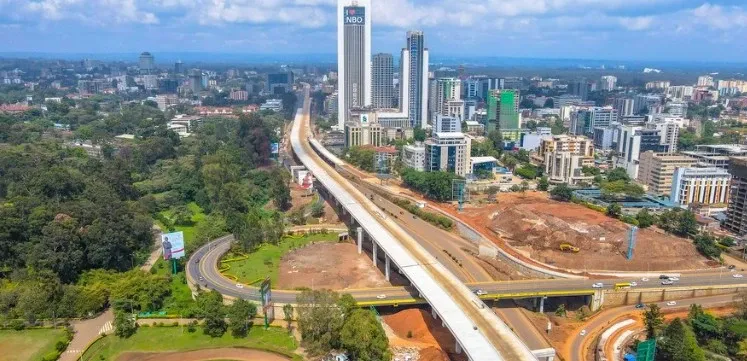
Synopsis
Key Takeaways
- Strategic alignment between Africa's development goals and WTO is essential.
- The AfCFTA is entering its operational phase.
- Inclusive decision-making in global trade governance is vital.
- Continental solidarity is needed to face emerging challenges.
- Legal frameworks must be harmonized for better integration.
Addis Ababa, May 24 (NationPress) Experts and policymakers have highlighted the necessity of ensuring strategic alignment between Africa's continental development objectives and the multilateral trading system governed by the World Trade Organization (WTO).
This emphasis was made during the 11th African Union Commission on International Law (AUCIL) Forum, convened at the AU headquarters in the Ethiopian capital of Addis Ababa from Thursday to Friday, under the theme "International Law, WTO Reform, and Implementation of the AfCFTA (African Continental Free Trade Area)".
The forum gathered African officials responsible for trade, development, planning, and foreign affairs, AU senior officials, as well as legal experts and trade negotiators from across the continent and beyond, as reported by Xinhua news agency.
Participants engaged in crucial discussions, including the alignment of the AfCFTA with global trade regulations under the WTO, safeguarding African intellectual property and heritage in international markets, and improving the legitimacy and inclusivity of WTO decision-making processes.
Hajer Gueldich, legal counsel for the AU, underscored the urgent need to redefine Africa's collective stance in the reform of global trade governance. She highlighted the essential need for promoting an inclusive decision-making process in global trade governance, while also fostering continental and international cooperation aimed at achieving a fair global trade order.
The AU indicated that this year's forum occurs at a "defining moment for Africa" as the AfCFTA enters its operational phase and WTO reform gains traction on the global stage.
Kevin Ndjimba, chairperson of the AUCIL, pointed out that the regulations governing international commerce are frequently established without adequate participation from Africa, compelling African nations to adapt rather than lead. He emphasized the need for coordinated efforts to amplify Africa's voice in multilateral trade negotiations.
Ndjimba further urged for greater continental unity in the face of emerging global and regional challenges, stressing the pressing need to harmonize policy and legal frameworks to facilitate regional integration and remove barriers to the movement of goods, services, and people throughout Africa.
According to the AU, as Africa's internal market begins to flourish and the global trading order evolves, the outcomes of this meeting promise to reinforce Africa's aspirations within a solid legal framework. Established in 2009 as an independent advisory body of the AU, the AUCIL provides the pan-African organization with guidance on international law matters.

